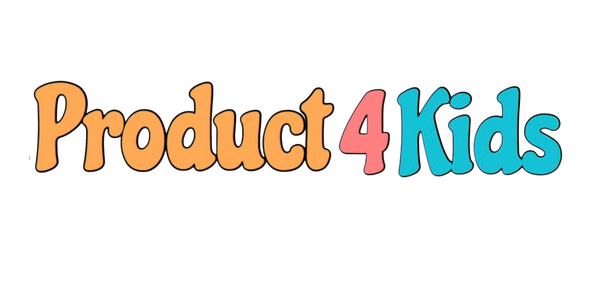- Introduction
- Benefits of Playing with Toys
- Stimulating Imagination and Creativity
- Enhancing Cognitive Development
- Promoting Social Skills
- Types of Kids Toys
- Educational Toys
- Building Blocks and Construction Sets
- Pretend Play Toys
- Outdoor Toys
- Puzzle and Board Games
- Electronic and Interactive Toys
- Choosing the Right Toys for Kids
- Age Appropriateness
- Safety Considerations
- Educational Value
- Personal Interests and Preferences
- Role of Parents in Selecting and Encouraging Play with Toys
- The Impact of Technology on Kids Toys
- Conclusion
- FAQs (Frequently Asked Questions)
Article:
Introduction
Toys play a vital role in a child's development, serving as powerful tools that unlock the world of imagination and fun. These playthings not only entertain children but also contribute to their overall growth. In this article, we will explore the benefits of playing with toys, discuss various types of kids toys, offer guidance on choosing the right toys for children, and delve into the role of parents in fostering playtime with toys.
Benefits of Playing with Toys
Playing with toys offers numerous advantages that contribute to a child's holistic development.
-
Stimulating Imagination and Creativity: Toys provide an avenue for children to create their own worlds and stories. From building magnificent structures with building blocks to role-playing with dolls or action figures, children can develop and express their creativity through imaginative play.
-
Enhancing Cognitive Development: Many toys are designed to engage children's cognitive abilities, such as problem-solving, critical thinking, and logical reasoning. Puzzles, board games, and educational toys, for instance, stimulate mental processes and help children develop essential cognitive skills.
-
Promoting Social Skills: Toys often facilitate social interactions, enabling children to engage in cooperative play, negotiation, and communication. Whether it's a tea party with toy tea sets or a game of catch with a ball, toys provide opportunities for children to learn and practice important social skills.
Types of Kids Toys
The world of kids toys is vast and diverse, catering to various interests, ages, and developmental stages. Here are some popular types of kids toys:
-
Educational Toys: These toys are designed to entertain while also imparting knowledge and skills. They can include alphabet and number puzzles, science kits, and interactive learning devices. Educational toys make learning enjoyable and engaging.
-
Building Blocks and Construction Sets: Building blocks and construction sets foster creativity and problem-solving skills. By constructing towers, bridges, and other structures, children learn about balance, spatial relationships, and engineering principles.
-
Pretend Play Toys: Pretend play toys, such as play kitchens, doctor kits, and dollhouses, encourage imaginative play and role-playing. They allow children to mimic real-life scenarios, promoting creativity, social skills, and empathy.
-
Outdoor Toys: Outdoor toys like bicycles, swing sets, and trampolines promote physical activity, coordination, and exploration of the natural environment. They encourage children to engage in active play and develop gross motor skills.
-
Puzzle and Board Games: Puzzle games and board games provide intellectual challenges and promote strategic thinking, problem-solving, and teamwork. They offer opportunities for family bonding and friendly competition.
-
Electronic and Interactive Toys: With advancements in technology, electronic and interactive toys have become increasingly popular. These toys incorporate lights, sounds, and interactive features to engage children and enhance their sensory experiences.
Choosing the Right Toys for Kids
When selecting toys for children, it is essential to consider various factors to ensure a safe and enriching play experience.
-
Age Appropriateness: Toys should be suitable for a child's age and developmental stage. Age guidelines provided by manufacturers can help in selecting toys that align with a child's abilities and interests.
-
Safety Considerations: Safety should be a top priority when choosing toys. Look for toys with non-toxic materials, sturdy construction, and no small parts that can be choking hazards. Ensure that the toys meet relevant safety standards.
-
Educational Value: Consider toys that offer educational benefits, such as promoting cognitive skills, language development, or problem-solving abilities. Look for toys that align with your child's learning needs and interests.
-
Personal Interests and Preferences: Every child has unique preferences and interests. Take into account their likes and dislikes, whether they enjoy arts and crafts, sports, or scientific exploration. Choose toys that cater to their individual passions.
Role of Parents in Selecting and Encouraging Play with Toys
Parents play a crucial role in selecting appropriate toys and encouraging their children to engage in meaningful play experiences. By observing their child's interests and preferences, parents can provide toys that align with their developmental needs and foster their growth. Furthermore, parents can actively participate in playtime, offering guidance, and engaging in interactive play, strengthening the parent-child bond.
The Impact of Technology on Kids Toys
Technology has revolutionized the world of kids toys, introducing a wide range of electronic and interactive options. While these toys offer unique features and experiences, it is essential to strike a balance between technology-based toys and traditional playthings. Encouraging a mix of both can provide children with diverse opportunities for learning, creativity, and social interaction.
Conclusion
Kids toys are much more than mere sources of entertainment. They serve as powerful tools for child development, stimulating imagination, enhancing cognitive abilities, and fostering social skills. By choosing age-appropriate, safe, and engaging toys, parents can unlock a world of learning and fun for their children, supporting their holistic growth and development.
